- Home
- Tony Roberts
Casca 48: The Austrian
Casca 48: The Austrian Read online
CASCA
THE AUSTRIAN
This is a book of fiction. All the names, characters and events portrayed in this book are
Fictional and any resemblance to real people and incidents are purely coincidental.
CASCA: THE AUSTRIAN
Published by arrangement with Eastaboga Entertainment, Inc.
Printing History
2018
Americana Books
A Division of Lonewolf Group Inc.
Copyright 2018 Eastaboga Entertainment, Inc.
Cover Design by John Thompson
All Rights Reserved
Including the rights to reproduce this book or portions thereof
In any form or format without permission.
For information contact
Americana Books
P.O. Box 210314
Nashville TN 37221
ISBN 978-1999826741
Printed in the United States of America
TONY ROBERTS
My mother was my unlikely route into becoming a Casca fan. On one shopping trip she bought me a copy of Casca 3: The Warlord. 3 was not a great place to start but I devoured it anyway, loved the character and the sense of history made real. Then followed 13 years while I collected the original series; without the help of the internet. Then what to do, the series was over. I started to write my own Casca novels, and set up my website www.casca.net, building a worldwide base for Casca fans and contacts.
My first Casca novel, Halls of Montezuma, was published in 2006. The Austrian is my twenty-second novel in the series.
I live in Bristol, with my partner Jane and a fluffy cat called Cassia.
Table of Contents
CASCA
THE AUSTRIAN
TONY ROBERTS
PROLOGUE
CHAPTER ONE
CHAPTER TWO
CHAPTER THREE
CHAPTER FOUR
CHAPTER FIVE
CHAPTER SIX
CHAPTER SEVEN
CHAPTER EIGHT
CHAPTER NINE
CHAPTER TEN
CHAPTER ELEVEN
CHAPTER TWELVE
CHAPTER THIRTEEN
CHAPTER FOURTEEN
CHAPTER FIFTEEN
CHAPTER SIXTEEN
EPILOGUE
THE CASCA SERIES IN EBOOKS
PROLOGUE
Augarten, Vienna, June 2017
The sun beat down on the many people enjoying the Summer heat. Some were reading quietly, stretched out on their towels, some with bicycles lying on the grass of the municipal park, others were throwing frisbees, others again walking slowly along the pathway that was shaded by twin rows of trees.
Two of the sun worshippers were a man and woman, the man around thirty years or so, dark-haired, wearing a pair of baggy khaki shorts and a light short-sleeved cotton shirt, unbuttoned to about a third of the way down. The woman was red-haired, green-eyed and clearly pregnant. She had a wide sunhat and dark glasses on, a long flowing skirt and a light, white vest-style tee-shirt. Her pale skin was smothered in sun blocker and she lay on a beach towel on the grass, reading. The man was sitting up with a bottle of coca-cola, looking at the people enjoying themselves.
In the near distance loomed an imposing stone circular construction, grey colored, with circular protrusions close to the flat top. It was an old World War Two flak tower, built during the German occupation of Austria. Written across the lower part in huge white letters were the words Never Again.
A shadow fell across the man and he twisted his head around, looking up. A square-built man had walked up to them, wearing reflective sunglasses, dressed in casual attire. A scar ran down the right-hand side of his face from the corner of his eye to the corner of his mouth. “Not often you see something allowed to remain that Hitler ordered built,” the new arrival said in a deep manly voice. His accent was indefinable. Not European, but not American either. Sort of mixed up between the two.
“Were you here at that time, Carlos?” the man asked, getting to his feet. The woman began to move to get up but Carlos waved her to remain where she was.
“No, I was on the Eastern Front. Stay where you are, Hayley. And congratulations, the pair of you. When’s it due?”
Hayley smiled. “September. We’re flying back to the States day after tomorrow, and we’ll probably remain there for a while.”
“I’ll get some free time then and come see you. Must wet the baby’s head,” Carlos said with a smile. He shook the man, Danny Landries, by the hand, then bent over and gave Hayley a big kiss on the lips.
“A bit public for you, surely, Carlos?” Danny said, settling back down as Carlos sat alongside him.
Carlos shrugged, looked about, then shook his head. “Anyone taking an interest in me? Nope. Thanks to your work the Brotherhood knows nothing of my whereabouts. What about the good retired Doctor Goldman?”
“Making do. Hates getting old but he’s hanging in there. Spends most of his time being cared for by his helpers these days, but refuses to go into any home. Getting grumpy in his old age, I can tell you.”
Carlos chuckled softly. “I think he’s earned the right. Once you get into your eighties you have the right to behave as badly as you like.”
“That means you can be a real sonofabitch and nobody ought to complain or be offended?” Danny asked.
They all laughed. “Too right,” Carlos said. He looked around but nobody was anywhere near. “Two thousand years and a bit entitles me to be a mite tetchy.” He gratefully accepted a can of beer from a small ice box Danny passed to him, cracked it open and nodded at Hayley’s tall bottle resting in a neat holder by her side. “See you got a taste for the raspberry here. Yeah, it is refreshing. The Austrians know how to make good food and drink.”
“Coffee’s pretty damn good too,” Danny said.
“Legend has it the Austrians discovered coffee when the Turkish camp was ransacked in 1683, and it spread throughout Europe quickly after that.” Carlos took a pull from his can.
Hayley regarded him closely. “You said that in that manner I’ve come to know all too well. You were here then?”
Carlos nodded. “I was. This place, and this area, Leopoldstadt, was taken by the Ottomans during that siege. It was a pretty desperate time, I can tell you; Europe was fearful that if Vienna fell, then the rest of Europe would fall to Islam. Maybe it might have done; who knows? Anyway, it was a damn close-run thing, as my old commander the Duke of Wellington famously once said.”
“You served under him?” Hayley gasped.
“Yep, but that’s for another time. Waterloo isn’t on today’s menu.” He took another pull. “Danny, got your recording equipment handy? Would like to give the good doctor another bit of bed-time listening if it’s possible.”
Both Hayley and Danny moved closer. To hear history from the lips of someone who was really there had something extra, an indefinable touch of excitement, tension and drama that you just didn’t get from carefully manicured histories in text books or from lecturers who knew nothing of the real human story, the hurt, the stress, the sheer damn terror of actually being there witnessing it happening.
Carlos took a deep breath, shifted position and turned so he was now facing the couple. He began speaking, his voice soft and quiet, but intense and the two could clearly hear everything. Danny had switched on his audio device so every word was being recorded, to be handed to Julius Goldman in Boston when Danny got there.
Both Danny and Hayley felt themselves being drawn into Carlos, into his story, so that the picture of the now, the present, the reality, blurred and they half-imagined the scenery changing subtly, to reveal a landscape long gone, a pre-industrial age, a rural age. Carlos’ voice held them, talking to t
hem. “Vienna was much smaller then, of course, it was across the water, bounded by what you now know as the ring road, the Burgring, Opernring, Schottenring, Schubertring and so on. The ring wasn’t there, but imagine in its place a big thick wall, with seventeenth century bastions projecting out from it.”
They both felt themselves swooping over a green land, moving away from Vienna, swooping north-west, across an idyllic late Spring world bereft of metaled roads, automobiles, pollution, aircraft, electricity pylons. The sky darkened and night came, and they plunged down to a copse of trees somewhere in the countryside a little distant from Vienna.
A lone man was sitting by a fire, eating a cooked piece of flesh; dressed in a long coat, split at the front, with long stockings, black shoes with silver buckles, a white multi-buttoned waistcoat and a sash. Resting by his side was a wide brimmed black hat. Both knew it to be the man sat before them, Carlos Romano, also known as Casca Rufio Longinus, the former Roman soldier who had pierced Jesus’ side on the cross, and cursed as a result to immortality.
Carlos – or Casca – was dressed in a typical man’s outfit of the second half of the seventeenth century. To complete his gear, resting against the bole of a tree behind him was a matchlock musket, a relic of a former war he’d taken part in, and by his side was a sword in its scabbard.
Casca was going to war.
CHAPTER ONE
Central Europe, late May, 1683
Casca concentrated on cooking his rabbit. He’d brought it down with his matchlock, something that had pleased him. The old gun from his time in the Swedish army still served him well even though it was rather dated. It had been perfectly fine in Poland where he had been helping the Zaporizhian Cossacks. More recently he had been moving west, away from the devastated regions into the recovering German states. He had hired himself out to some of the more affluent dukes and margraves.
Now? He stared deeply into the flames, the glow casting his features into a strange eerie orange color. He was going to fight for an empire he’d fought against in the not too distant past, but times change. Circumstances forces change. Alliances form and break, and a man such as he who had no country or kingdom to call his own could pick and choose which side to fight for at his leisure. He was not compelled by any flag or cause to take sides. This time there was no difficulty in deciding who he was going to fight for. He had a two hundred and thirty-year-old grudge to repay, and he was determined to put the pain of defeat and being left without a home right.
It had been in 1453 that he’d been part of the last stand of the Roman Empire. Outsiders called it the Greek Empire or the Byzantine Empire, but they had always called themselves Romanoi, Romans, and they had been the last flicker of the old Roman Empire. The date had been etched deeply in his memory – May 29th, 1453. Precisely 230 years ago on this very day.
That terrible morning when the Ottoman Turks had finally broken in, the defenders overwhelmed by sheer weight of numbers, burned in his mind. They had held out for over six weeks, twelve attackers to every one of the defenders, but finally had been worn down by the incessant bombardment and attacks. The last emperor, Constantine XI, had formally dismissed Casca from his service, giving him the chance to flee the coming slaughter. Casca had watched helplessly as Constantine and his two companions had bravely forded into the wave of Turks, and had been engulfed. Casca had escaped, thanks to the brave sacrifice of the emperor.
It had all left a deep scar in his psyche. It had been the extinction of the empire he had been born into and grown up in, and had always been there as a touchstone for him. The Ottomans had destroyed that.
Now they were marching on Vienna, the capital of the Holy Roman Empire. Casca didn’t care a damn about this particular empire, as it wasn’t Roman – it was German – and it sure as hell wasn’t Holy. But he would forget the recent past when he had fought against and killed many imperial troops in the Thirty Years’ War, fighting for Sweden. No, he was going to Vienna to fight for the empire and its emperor Leopold because they were fighting the Turks.
This was personal.
A twig snapping alerted him. Someone was close, probably drawn by the fire. Casca put down his meat and picked up the sword. He didn’t call out or stand up; he preferred to wait and see what the approaching person or persons would do.
Movement to his right. He remained still, allowing his peripheral vision to keep track of the shape coming towards him. Nothing moved to his left, and behind him stood the thick bole of the tree.
“Care to let me share your fire?” a man speaking German asked.
Casca turned his head. A tall man loomed over him. The fire and the night made his features hard to make out. He did have a large backpack and carried a straight staff. “Sure,” Casca replied in German. “But I have no spare food for you.”
The man shrugged off his pack and sank down to sit on it in relief. “That’s fine – I have some of my own. I was looking for a place to sleep when I saw your fire in the distance. By the look of you I’d say you’re on your way to Vienna. Joining the imperial army?”
“If they’ll have me. I suspect they’ll need anyone they can get their hands on.”
The man nodded, warming himself. “Peter Handorp, by the way, from the Rhineland.”
Casca briefly wondered whether to keep his Swedish persona or not. Perhaps not. There may be some in Vienna still around who’d fought that war even though it had ended thirty-five years previously. “Carl Lang,” he said. It was similar to Casca Longinus, particularly after dropping the Roman suffix. It sounded a good German name.
“I can’t identify your accent,” Peter said.
“I have no home; I’m a mercenary.”
“Oh,” Peter peered into the flames. “Highest bidder?”
“Not always. I pick who I fight for, not the man with the biggest treasury. I have a particular reason to hate the Turks, so let’s leave it at that.”
Peter grunted. “All Christians should take up arms to fight the Muslims. It is shameful the French have seen fit to ally themselves with them. A curse on their kingdom!”
Casca leaned back. French opposition to the Hapsburg realm was well-known, and they would rather side with the Crescent than the Cross if the Cross was Austrian. It was nothing new; Constantinople was felled as much by the cannons of a Christian Hungarian than by the efforts of Muslim warriors. “France sees the Empire as a rival to their ambitions along their frontiers. You won’t get the French to turn their attention to any other goal other than extending their lands. They won’t see the Ottomans as a danger until their lands form a common border.”
“Then they are greedy and stupid,” Peter said in disgust.
“Perhaps, but they have a damned fine army,” Casca replied, pointing at Peter. “So, what’s your destination? Vienna, too?”
“Yes. The emperor has called for help so I am answering him. I think it is the duty of all Christians to take up arms to save us from the Turks.”
Casca grunted, picking up his rabbit and carried on warming it through. “Rumors are that Leopold is a few million florins short in funds. Money is in short supply and I hear the Diets aren’t paying up. He still owes a load from the wars with France and Sweden all those years ago.”
“Why should money be the deciding factor? Surely the future of our souls is at stake here?”
Casca smothered a smile. He’d heard all that kind of thing centuries ago during the Crusades. He’d fought for both sides, Cross and Crescent, and neither side was any better than the other. Both had killed in the name of their god indiscriminately. He eyed Peter. “War is expensive. It always costs money. An army has to be equipped, fed, housed, supplied, trained. All this costs a lot of money. And your average soldier needs to be paid in order for them to buy those things that are important to him, and maybe send money home to support the wife and children? A war always costs money, no matter how noble the cause and no matter how much in the right one side or the other is. Leopold is going to be even more in debt aft
er this little business. If he loses, then he’ll be ruined for life. Even if he wins, unless he manages to get his hands on a substantial load of plunder, he’ll be worse off.”
Peter grumbled and settled onto the ground. He clearly didn’t agree with Casca’s pragmatic attitude; he appeared to be an idealist. Casca slowly ate his supper, reflecting on what he would face when he got to the imperial capital.
Austria – the Hapsburg realm – had, like most European states, recently come to the conclusion that it was far better to have a standing army. Their experiences between 1618 and 1648 had shown them that. Regimental structure had been modified and the number of pikes in a company had been reduced and matchlock numbers increased. There also had been a recent development in gun design, with the introduction of a flintlock, but they were too few in numbers still, so the matchlock was what would be normally found in the army.
Tactics had been refined during the war. Infantry in the open now were arranged in two lines with pike men interspersed in between them, something everyone had copied from the Swedes. The pikes were there to keep cavalry off the musketeers. Cannons were growing in size and efficiency and Casca wondered where it would all end up. In the hands of a decent musketeer, someone could be hit at over three hundred paces.
He got his blanket and wrapped it around him and rolled over, his back to the fire. He shut his eyes, thinking that he had picked up a travelling companion whether he liked it or not.
___
Vienna was a city bustling with preparations for war. The city was bordered to the north by the Danube and to the east by a smaller river called the Wien. Vienna’s walls covered every point of the compass and bastions stood at regular intervals, huge arrowhead-shaped projections that afforded extra protection for the defenses and gave better fields of fire for the defending cannons. Beyond the walls and bastions were ravelins, ditches shaped so as to break up any attacking formation and expose them to murderous fire.
The city within the walls was a maze of streets and houses, with half a dozen main streets, along which stood the major buildings of the city, such as the imposing cathedral of St. Stephen with its huge spire and multi-colored tiled roof, sloping very steeply. Casca knew this was to allow snow to fall off easily rather than weigh heavily on the tiles and risk the possibility of damage.

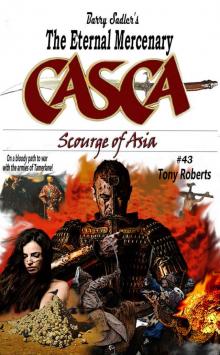 Casca 43: Scourge of Asia
Casca 43: Scourge of Asia The Lombard
The Lombard Casca 49: The Lombard
Casca 49: The Lombard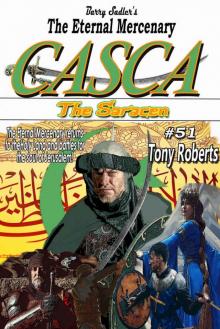 The Saracen
The Saracen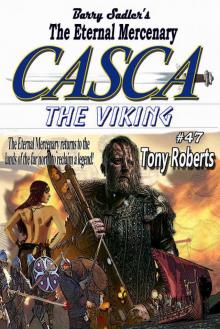 Casca 47: The Viking
Casca 47: The Viking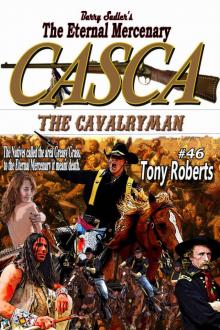 Casca 46: The Cavalryman
Casca 46: The Cavalryman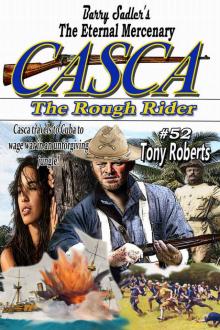 Casca 52- the Rough Rider
Casca 52- the Rough Rider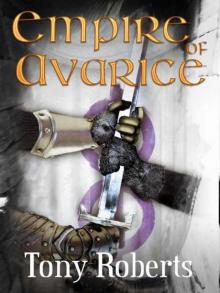 Empire of Avarice
Empire of Avarice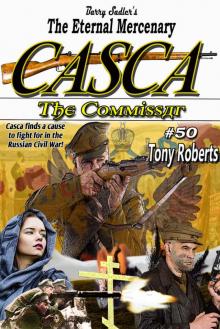 The Commissar
The Commissar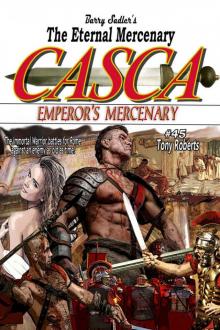 Casca 45: Emperor's Mercenary
Casca 45: Emperor's Mercenary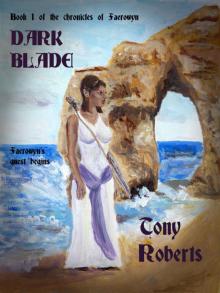 Dark Blade
Dark Blade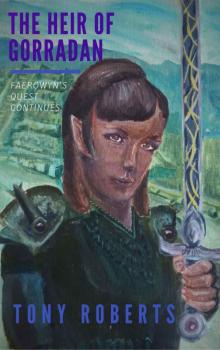 The Heir of Gorradan (Chronicles of Faerowyn Book 2)
The Heir of Gorradan (Chronicles of Faerowyn Book 2)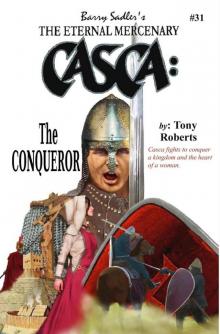 Casca 31: The Conqueror
Casca 31: The Conqueror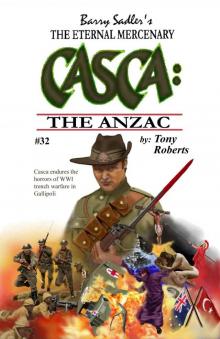 Casca 32: The Anzac
Casca 32: The Anzac The Anzac
The Anzac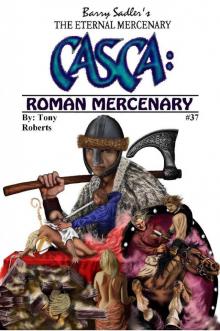 Casca 37: Roman Mercenary
Casca 37: Roman Mercenary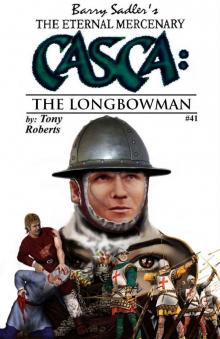 Casca 41: The Longbowman
Casca 41: The Longbowman The Longbowman
The Longbowman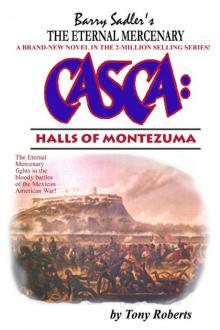 Casca 25: Halls of Montezuma
Casca 25: Halls of Montezuma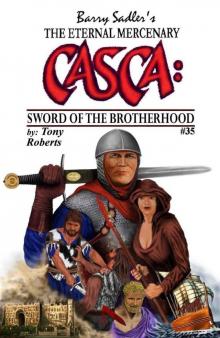 Sword of the Brotherhood
Sword of the Brotherhood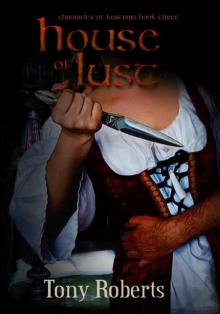 House of Lust
House of Lust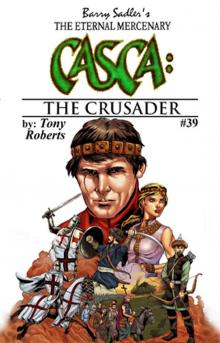 Casca 39 The Crusader
Casca 39 The Crusader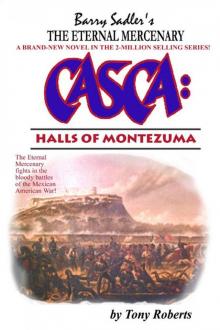 Halls of Montezuma
Halls of Montezuma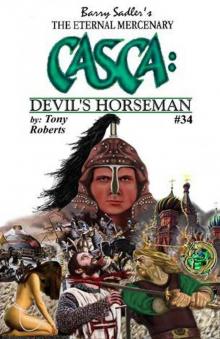 Devil's Horseman
Devil's Horseman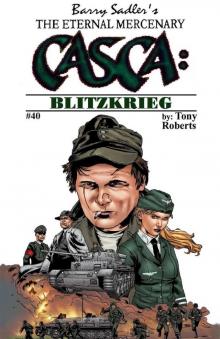 Casca 40: Blitzkrieg
Casca 40: Blitzkrieg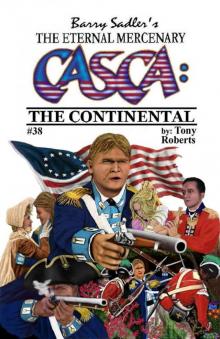 Casca 38: The Continental
Casca 38: The Continental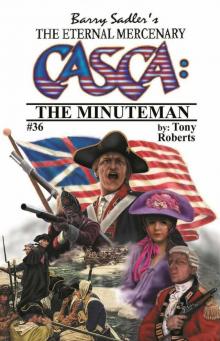 The Minuteman
The Minuteman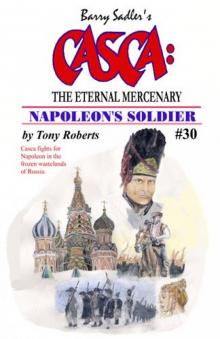 Napoleon's Soldier
Napoleon's Soldier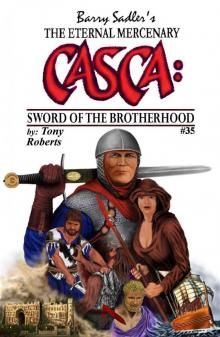 Casca 35: Sword of the Brotherhood
Casca 35: Sword of the Brotherhood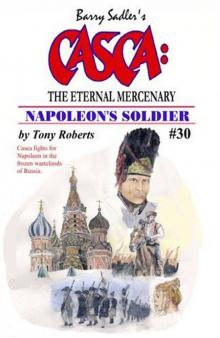 Casca 30: Napoleon's Soldier
Casca 30: Napoleon's Soldier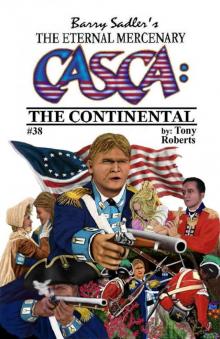 The Continental
The Continental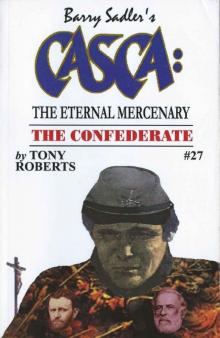 The Confederate
The Confederate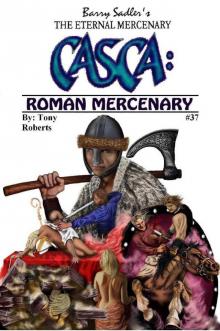 Roman Mercenary
Roman Mercenary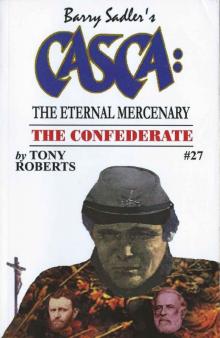 Casca 27: The Confederate
Casca 27: The Confederate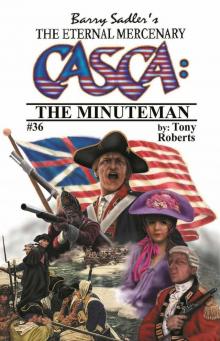 Casca 36: The Minuteman
Casca 36: The Minuteman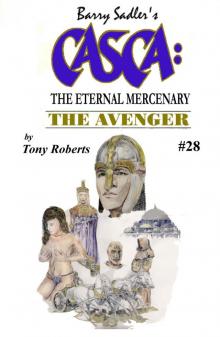 Casca 28: The Avenger
Casca 28: The Avenger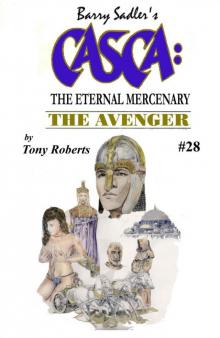 The Avenger
The Avenger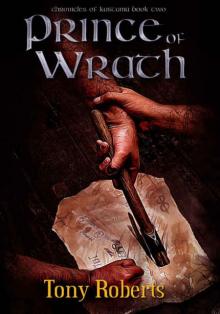 Prince of Wrath
Prince of Wrath